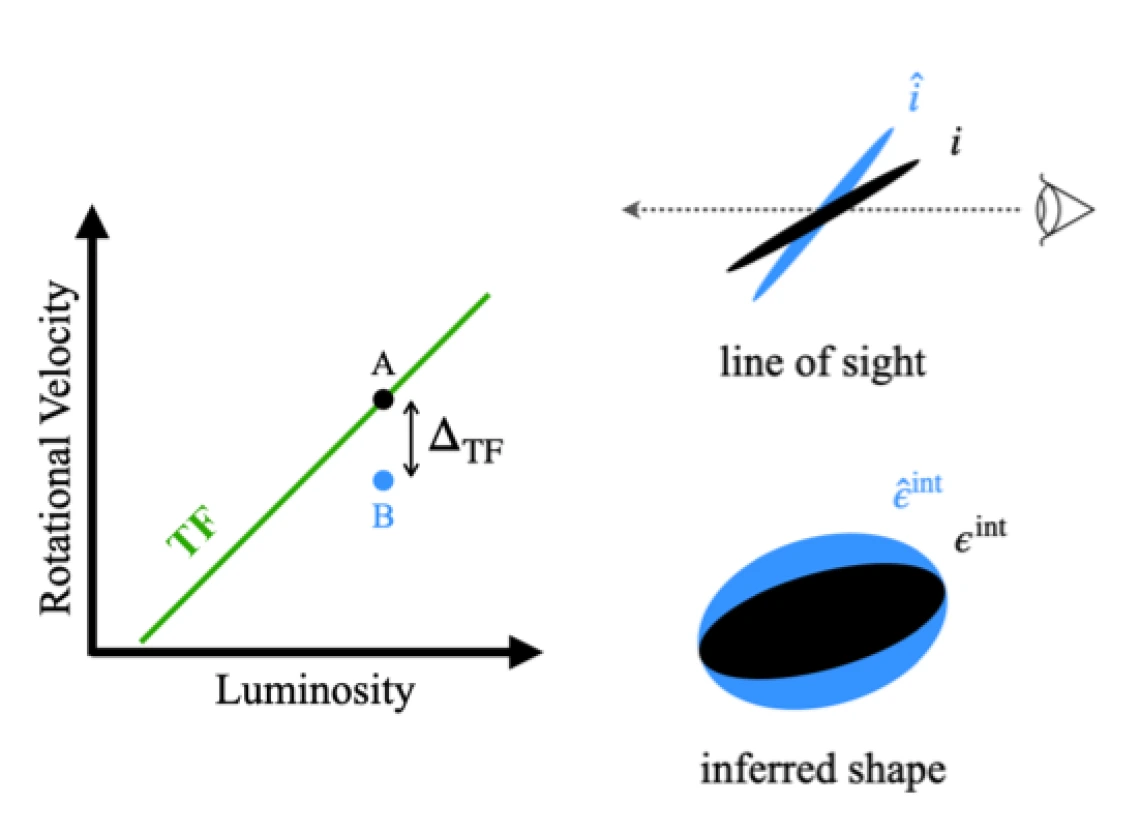New paper out! Astrophysical systematics in kinematic lensing: Quantifying an intrinsic alignment analog

Schematic illustration of how a galaxy’s deviation from the TF relation (∆TF) impacts the intrinsic shape estimator.
Kinematic lensing (KL) is a new weak lensing technique that reduces shape noise for disk galaxies by including spectroscopically measured galaxy kinematics in addition to photometrically measured galaxy shapes. Since KL utilizes the Tully-Fisher relation, any correlation of this relation with the local environment may bias the cosmological interpretation. For the first time, we explore such a Tully-Fisher environmental dependence (TED) effect as a potential astrophysical systematic for KL. Our derivation of the TED systematic can be described in a similar analytical form as intrinsic alignment for traditional weak lensing. We demonstrate analytically that TED only impacts KL if intrinsic alignment for disk galaxies is nonzero. We further use IllustrisTNG simulations to quantify the TED effect. Our two-point correlation measurements do not yield any additional coherent signals that would indicate a systematic bias on KL, within the uncertainties set by the simulation volume.
